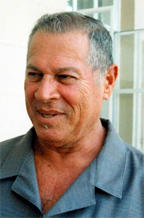The High Court Registry came under intense scrutiny last month when a long-standing fraud case failed to go to trial because of missing records.

And reports of files disappearing continue to plague the judicial system. Criminal cases are largely affected by what one attorney described as “suspect disappearances”. This also occurred in the prominent elections petition case filed by the Alliance for Change (AFC) following the 2006 general elections. The AFC file disappeared some time last year, but resurfaced months after plans were underway to reconstruct the file.
“Files go accounted for almost every day,” Senior Counsel Bernard De Santos said of the issue. De Santos is fully aware of the security lapse in the system and was recently involved in the High Court case of Dr Abu Bakr Bari which failed to make it to trial because of missing records.
Justice James Bovell-Drakes had commented during the Dr Bari trial that it was unfortunate that a file could go missing in the Registry and no one could account for it.
De Santos cited poor management of the system within the Registry, during a recent interview with this newspaper, saying it was open to manipulation. The question of the security of files is one which ought to be addressed, he said, stressing the need for accountability.

Stabroek News tried to contact Registrar (ag) Bibi Ali for a comment on the issue of missing files and was informed after many attempts that she “does not speak with the media”. The Deputy Registrar at the Supreme Court also declined to comment in the absence of permission from the Registrar.
Prior to her request for leave in the wake of allegations of fraud Registrar Sita Ramlal was reportedly firm on securing files at the Registry. A well-placed judicial source told Stabroek News that files were “fiercely protected” during her time. Ramlal was later embroiled in a controversy involving records at the Registry and is currently before the magistrate’s court on charges of fraud.
AFC leader and attorney-at-law Raphael Trotman referred to the situation at the Registry as a systematic failure on the part of the judiciary and called for a more tightly managed system. Since legislation has been enacted, the system can go in the direction of filing electronic statements in addition to the paper files, according to Trotman, but he underscored there has been no progress in this regard.
Trotman argued that the criminal justice system has been affected over time by corrupt practices which resulted in the collapse of many cases. He said too that in some instances disasters play a role and pointed to the recent fire which ripped away a section of the Registry destroying files.

Trotman said cases involving an element of fear such as the sexual abuse of women and children should involve a new system of filing statements whether electronically and or by video recording because the “legislation is in place”. He stressed that the system currently can and has been easily penetrated and that some cases suffer because of this.
Further, he said having duplicate copies of a particular file within the Registry was important because a case should not have to collapse when some records go missing. In his party’s election’s petition case they were in a position to easily reconstruct the file because duplicate copies of every document filed existed, which is typical in civil matters.
Grave offence
President of the Guyana Bar Association Attorney-at-law Teni Housty called the removal of files from a Registry a grave offence which tramples on the effective administration of justice “on both sides”. He said the parties involved in any matter suffer when a file disappears because of the resulting problems.
Housty argued that justice breaks down when case files go missing in the system, adding that this was “not a way out” of a case because the nature of the system allows for files to be reconstructed. According to him, there are ways to reconstruct a file even in criminal cases. He said the responsibility is on everyone involved in a case to see that files are safeguarded.
The system is paper driven and is likely to remain this way for some time, Housty said, stating that the days of electronic filing are “far away”. He said it is important that every piece of paper in a file is duplicated and persons with interest in the matter are in possession of it. “There is a way to rebuild a case and allow it to continue if a file disappears,” he emphasized.
Still, he said missing files are a problem which needs to be addressed. “Missing files delay the manner in which justice is delivered, particularly when we view it from an individual perspective,” he added.
Appeal
De Santos told Stabroek News he would appeal the decision of Justice Bovell-Drakes to rule against a High Court trial for Dr Bari. The judge had concluded that the secondary evidence before the court was not satisfactory for a jury trial.
Justice Bovell-Drakes rejected the secondary materials produced by the state because a large section of the evidence did not bear the initials of the magistrate who presided over the preliminary inquiry in the lower court. The evidence was essentially not accepted as a true copy of the original deposition which was prepared in the Magistrate’s Court.
But De Santos argued that the trial could have gone ahead because sufficient materials were there to prosecute based on various filing procedures which were required in keeping with the law. He said the decision would be appealed.
De Santos noted that the paper filing system will continue to pose challenges because of how fragile it is. People can easily manipulate it, he said, alluding to corruption from those who are paid to defend the rights of others. He also cited a lack of competent staff as another problem stating sometimes records were filed in the wrong place and “people spend months looking in the right place when it is not there”.





